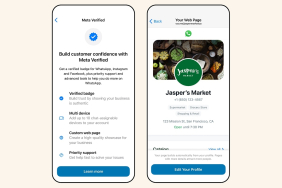Meta, the parent company of Facebook, has announced that users within the European Union, European Economic Area, and Switzerland will have enhanced privacy controls regarding the sharing of information across its platforms. Residents in these areas will now be able to utilize Instagram and Facebook independently, even if their accounts are linked on the platform.
In a comprehensive blog post detailing these updates in light of regulatory requirements from the EU’s Digital Markets Act (DMA), the company indicated that individuals who have previously connected their Facebook and Instagram accounts can either maintain their link or choose to unlink them. This unlinked status would ensure that their information remains separate across the two services, allowing for increased user privacy.
This update follows the recent cessation of cross-app messaging between Instagram and Messenger, which occurred a month prior. Three years after CEO Mark Zuckerberg initially suggested cross-platform chatting, Meta has restricted messaging to individual platforms. The company had also introduced end-to-end encryption for Messenger in December.
Users in these specified regions will have a new option with Messenger, allowing them to create a Messenger account that functions independently of their Facebook account. While messaging and calling features will remain available, certain functionalities may not perform as intended.
For instance, the messaging features on Messenger’s Marketplace that facilitated communication between sellers and buyers will now require using email for those who choose to unlink their accounts. Additionally, unlinking accounts related to Facebook Gaming might limit access to multiplayer options and tailored recommendations, according to the company’s statements.
These modifications, similar to the optional ad-free subscription for Facebook and Instagram rolled out two months ago, are exclusively available to users in the EU, EEA, and Switzerland. Meta may consider extending comparable functionalities to other regions if similar regulatory frameworks to the DMA are adopted, enabling users globally to maintain independent accounts.





